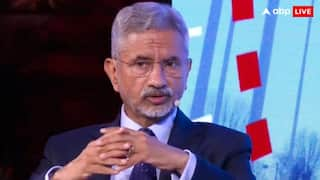Explorer
How BJP state units are being taken over by Sangh men

New Delhi: The BJP has appointed a new crop of former Sangh men as state unit chiefs, strengthening a trend that began with Dilip Ghosh and Kummanan Rajasekharan being elevated as its Bengal and Kerala presidents last year. Barring Tapir Gao, picked as Arunachal Pradesh unit head, all the others appointed on Friday have Sangh moorings. They are: Keshav Prasad Maurya (Uttar Pradesh), former chief minister B.S. Yeddyurappa (Karnataka), Vijay Sampla (Punjab) and K. Laxman (Telangana). Uttar Pradesh and Punjab face Assembly elections early next year while Karnataka votes in the summer of 2018. Maurya, an MP, underwent a long and tangled selection process that factored in the candidates' caste origins, "commitment" to Hindutva and ability to rise above factionalism, the bane of the party in the heartland state. Yeddyurappa's rehabilitation after a long spell in the cold implies he has beaten back opposition from his rivals to emerge front-runner in the race to become the chief ministerial candidate. Sampla is a junior Union minister and Laxman is the Telangana BJP's legislature party leader. The objective in promoting Maurya seemed to be to fuse his disadvantaged background with his Hindutva politics, a combination that had helped Kalyan Singh in Uttar Pradesh, Shivraj Singh Chouhan in Madhya Pradesh and Narendra Modi across India. Maurya, who represents Jawaharlal Nehru's former Lok Sabha constituency of Phulpur, was a declared child volunteer in the Sangh. He went on to become a city secretary of the Sangh and a zonal organising secretary with the Vishwa Hindu Parishad. He had been a Sangh member in Allahabad when VHP patriarch Ashok Singhal took him under his wings. Although BJP general secretary Arun Singh, who announced the appointments, mentioned Maurya's "cow protection" and Ayodhya credentials, the party seemed keener to highlight his "hard knocks" story. "He worked as a chaiwallah (tea vendor), a newspaper seller and a labourer. He comes from the family of a poor farmer," Singh said in a throwback to the Modi narrative. The BJP played up his caste origins - the vegetable-selling Mauryas are spread across the state and count among the more backward castes, unlike the empowered Yadavs, Kurmis and Lodh Rajputs. Some BJP sources provided a more down-to-earth explanation for the choice of Maurya, saying he was "low-key, will not challenge the entrenched state leaders, and has the skill to take along everybody". It was clarified that he would not be the candidate for chief minister. Maurya is a director with two private companies, owns a petrol station and is a partner in a private hospital in Allahabad. In 2007, when he contested the Assembly elections, his declared assets totalled Rs 1.36 crore. By the time he contested the next state election in 2012, his declared assets were worth Rs 13 crore. Maurya faces about a dozen criminal charges and spent 11 days in jail custody in connection with the 2011 murder of a villager, Mohamed Ghaus, following a dispute over the use of a loudspeaker in Kaushambi near Allahabad. Party sources said that Yeddyurappa had been picked because "he is still our tallest leader" in Karnataka and had proved his "damage potential" in the last election, when the party was routed after he broke away and contested solo. Laxman, whose nomination was pushed by Union minister M. Venkaiah Naidu, had caused outrage in 2014 by dubbing tennis player Sania Mirza a "daughter-in-law of Pakistan". The BJP apologised on Laxman's behalf while he lay low thereafter.
Related Video
Breaking: Deadly Chinese Manja Claims Lives Across India; Multiple Injuries Reported
Follow Breaking News on ABP Live for more latest stories and trending topics. Watch breaking news and top headlines online on ABP News LIVE TV
Top Headlines
News
Election 2025
India
World





































